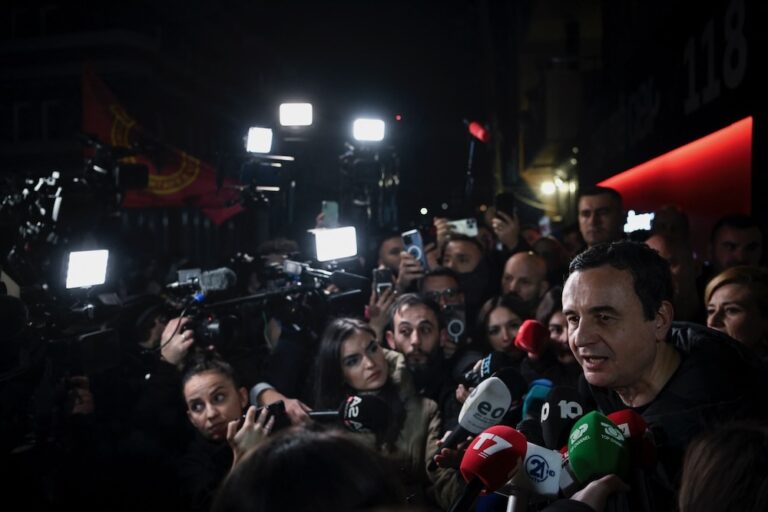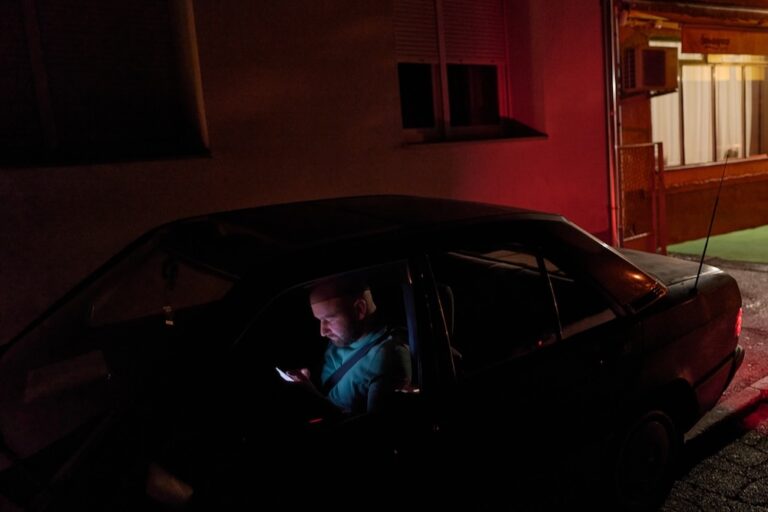(WPFC/IFEX) – On 28 April 1998, the WPFC released a letter outlining its deep concern over plans by Western allies to set up a press censorship panel in Bosnia-Herzegovina. The WPFC’s position is that if those on the “right” side censor today, what is to prevent censorship tomorrow by the “wrong” side? This is a […]
(WPFC/IFEX) – On 28 April 1998, the WPFC released a letter outlining its
deep concern over plans by Western allies to set up a press censorship panel
in Bosnia-Herzegovina. The WPFC’s position is that if those on the “right”
side censor today, what is to prevent censorship tomorrow by the “wrong”
side? This is a precedent best not ever set by any society that values
democracy. The WPFC is urging freedom of expression organizations to oppose
this ill-considered plan.
**See IFEX press release of 27 April 1998**
The full text of the WPFC letter follows:
28 April 1998
Fax Letter to: (703) 697-9080
William S. Cohen
Secretary
Department of Defense
The Pentagon
Washington, D.C. 20301
Dear Mr. Secretary,
As Chairman of the World Press Freedom Committee, which includes 44
journalistic organizations on six continents, I write to strongly protest
plans by Western allies, including the United States, to create what amounts
to a censorship panel to control news in Bosnia-Herzegovina.
The stated purpose of this “Intermediate Media Standards and Licensing
Commission” would be to end poisonous and inflammatory newspaper stories and
radio and television broadcasts. The effort, however, could well result in
general suppression of legitimate news and opinion, and would without
question set a most dangerous and unfortunate precedent for news censorship
in Europe and elsewhere.
Authoritarian governments around the world could use the example of this
censorship board as a license to suppress free speech and free press in
their countries.
Deplorable as they are, the hate-inspired and epithet-filled propaganda this
panel seeks to suppress are best countered with more, not less, free press
and free speech. The free flow of information is essential to the
development of democracy in Bosnia and elsewhere, and any attack on open
discourse — regardless of how repugnant it may seem to some — is an attack
on precisely the democratic principles the Western allies claim to be
defending in Bosnia-Herzegovina. This long has been the standard generally
observed in our own society.
For the United States, the freest nation on earth, to participate in
establishment of a censorship body is particularly disturbing. The U.S. role
should be to promote many independent voices, not to suppress them. I urge
you to remember that the principles of free speech and press freedom are
embodied not only in the U.S. First Amendment, but also in fundamental
international understandings such as the U.N. Universal Declaration of Human
Rights, which marks its 50th anniversary this year. The Universal
Declaration’s Article 19 states unequivocally:
“Everyone has the right to freedom of opinion and expression; this right
includes freedom to hold opinions without interference and to seek, receive
and impart information and ideas through any media and regardless of
frontiers.”
This means that EVERYONE has that right — not just people with “correct”
views and opinions. If today a panel decides that Radovan Karadzic’s
followers cannot express themselves in print or broadcast, then tomorrow it
might determine that Voice of America or BBC cannot be heard. This is a
slippery slope — and we should not set foot on it.
I implore you to resist resorting to the very type of repression used by the
criminals you oppose. The silencing of one group of demagogues is not worth
risking mortal damage to democratic principles.
Sincerely,
James H. Ottaway, Jr.
Chairman


